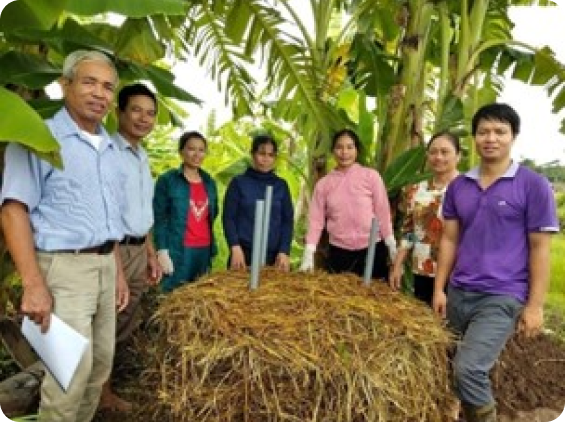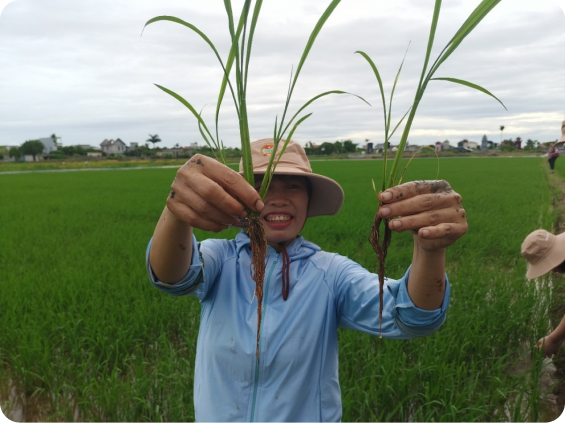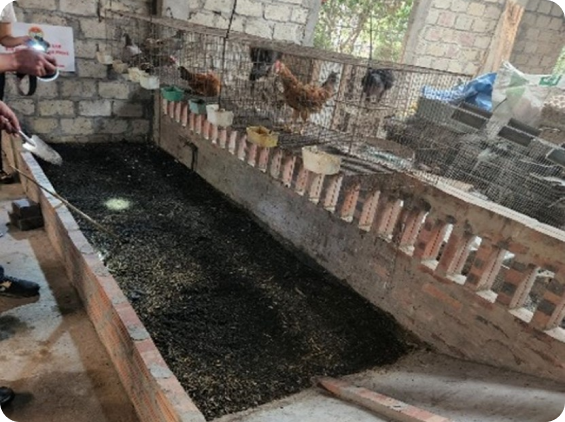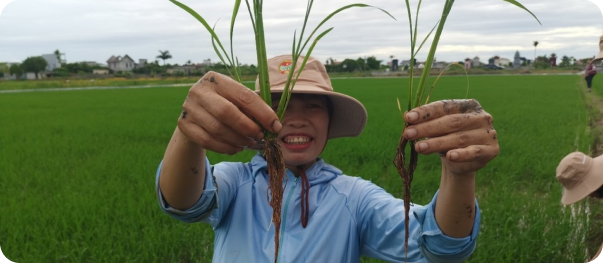Background
Agricultural and food waste are major sources of black carbon (from burning) and methane emissions. However, when managed properly, they can be transformed into valuable resources such as compost or insect protein. This grant supports waste management practices in Vietnam by scaling improved methods to treat farm and food waste. Technical training is provided to rural communities on using black soldier fly larvae and red worms to convert manure and food residue into insect protein for animals. Fermentation is used to turn food waste into animal feed, while composting and deep litter chicken bedding transform organic matter into soil amendments.




